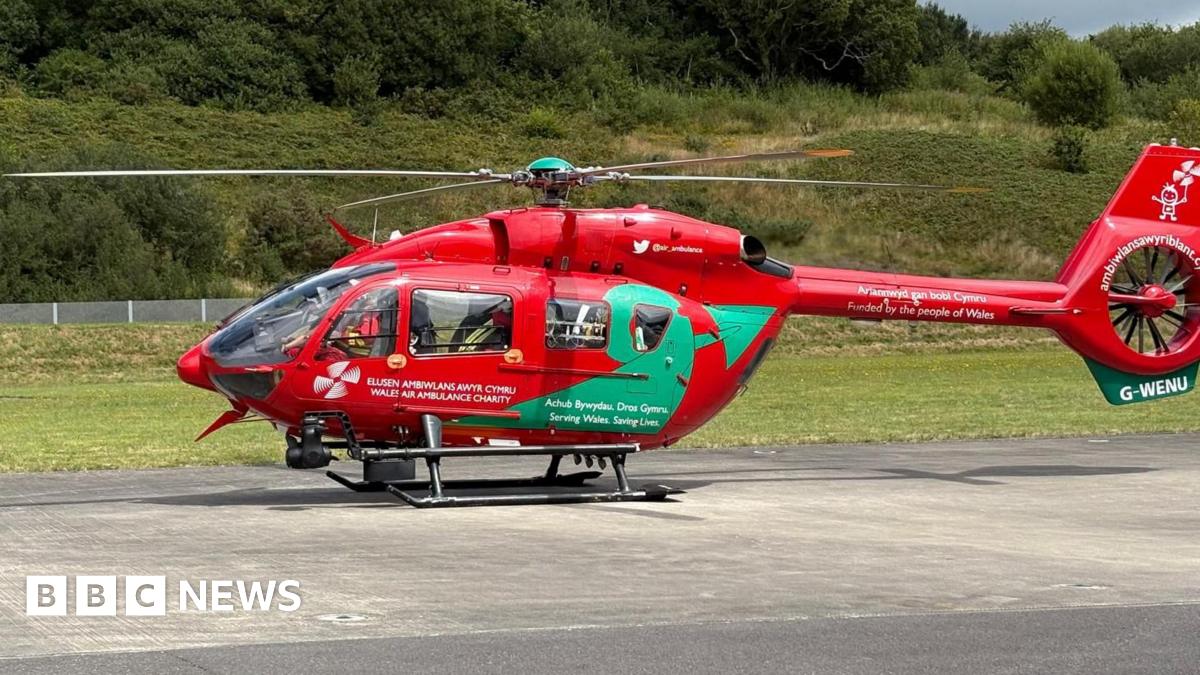In the past, patients would be taken to a nearby hospital and have a CT scan before it was known if they needed to be moved to a major trauma centre.
Mr Jones said that could take up to six hours, whereas now “if we do take that 20 minutes longer to get to scene, they are still within our major trauma centre within an hour and a half – with the addition of having critical care on the roadside and in flight or in the car”.
About 13 calls a day – 1% of the total calls – to the Welsh Ambulance Service are eligible for this specialist care.
In July 2021 Laura Davies’ husband Arwel and seven-year-old daughter Sofia were among them when they were involved in a crash not far from their home in Llanwrda, Carmarthenshire.
Air ambulances from Cardiff and Welshpool were sent, along with a road crew from Dafen, but Arwel died at the scene.
Laura asked if her husband would have been saved if he had made it to hospital and, in talks with the after-care team, she said she was able to understand the treatment he got at the scene “was the same as any hospital could have delivered”.
She added: “It was a huge comfort, it does help process the loss and certainly helps answer lots of questions I had.”
She said the empathy of the “real life superheroes” was part of the reason she got involved as a charity trustee.
While medical staff are supplied by NHS Wales, funding for everything else is done by the Wales Air Ambulance charity.
“The care that was extended to myself and my daughter when we were transported to the Heath [hospital in Cardiff] was incredible.
“I was overwhelmed, I was terrified and they literally just held my hand through the process.”
